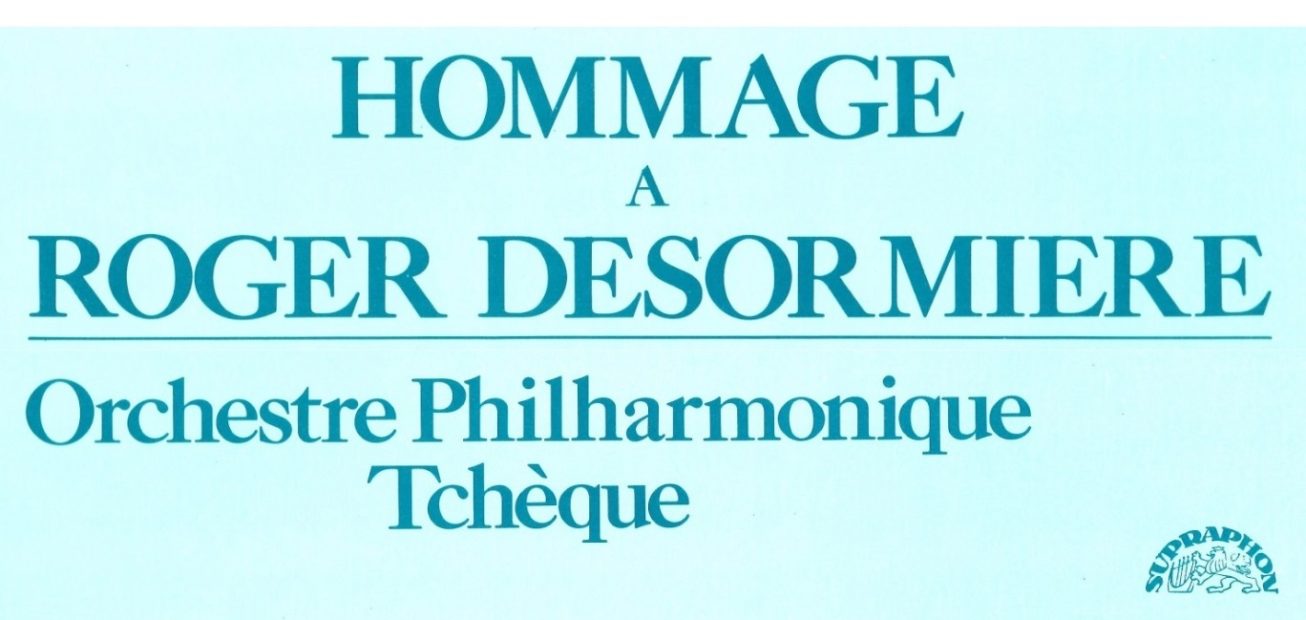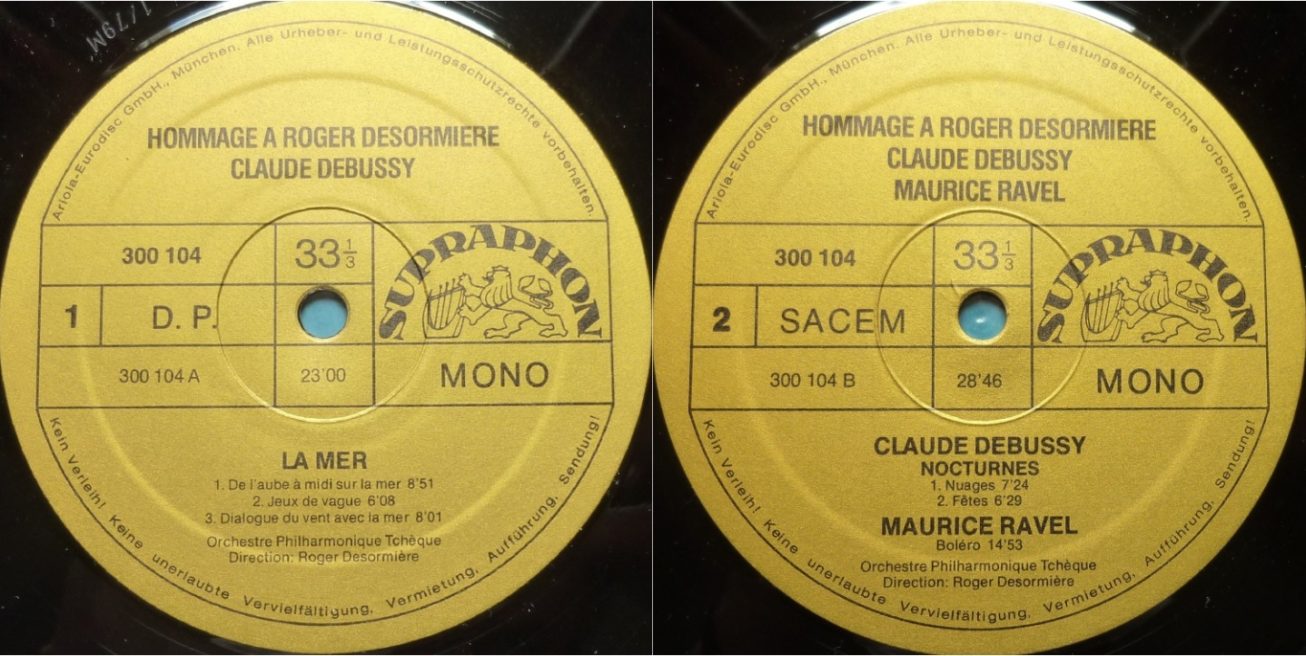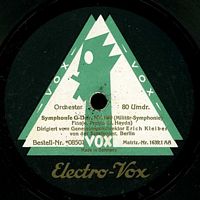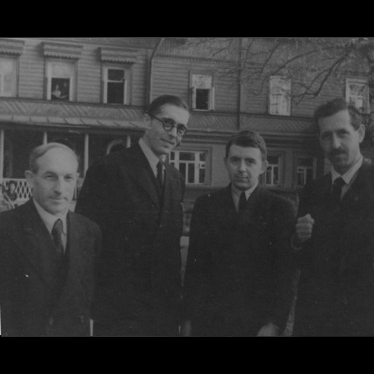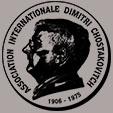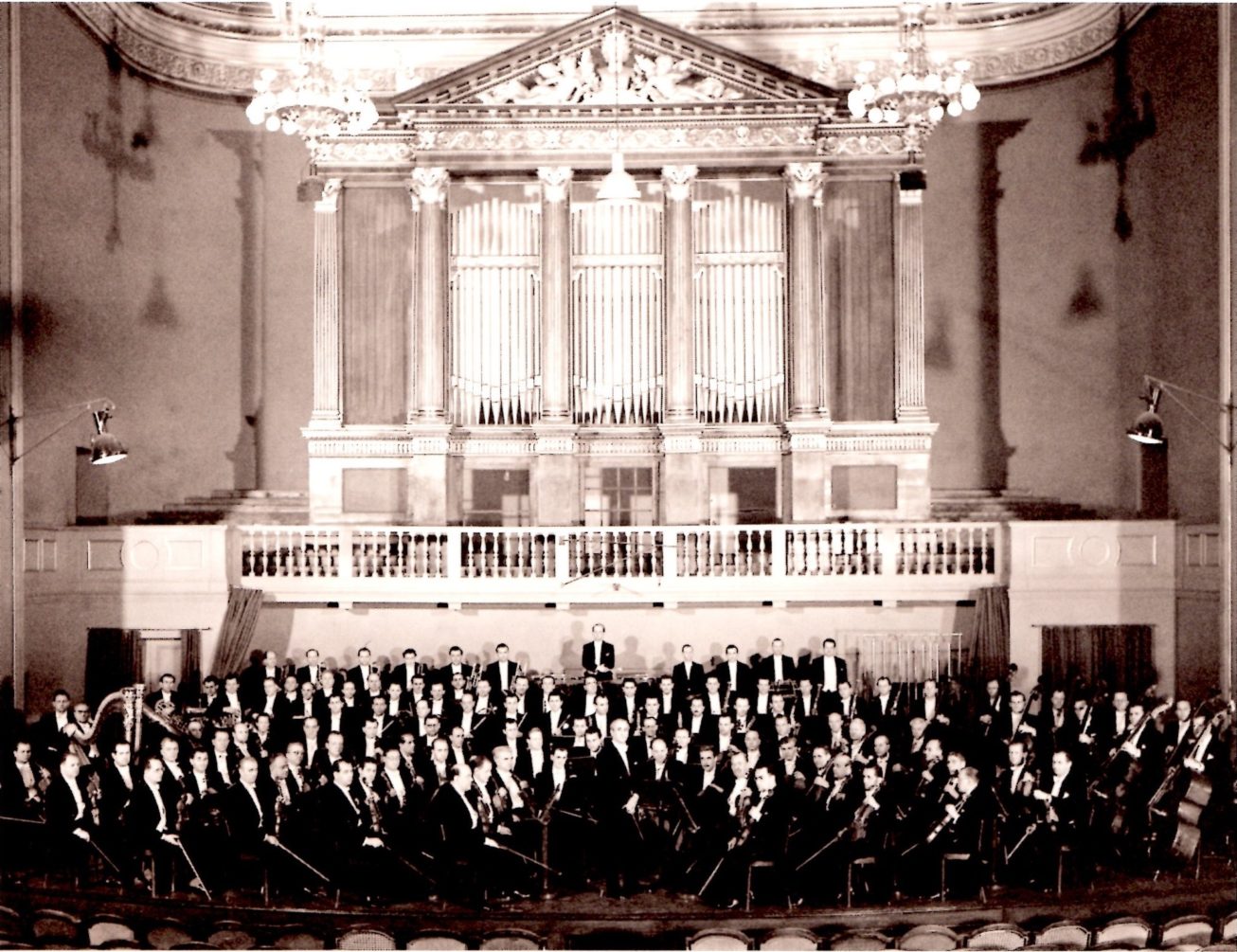Étiquette : Česká filharmonie Orchestre Philharmonique Tchèque

František Stupka Česká filharmonie
Prague Salle Smetana (Smetanova síň) – 8 janvier 1959
Source 33t/LP: Panton 01 0447 G

Le chef d’orchestre František Stupka (1879-1965) a débuté sa carrière comme second violon d’un quatuor tout en commençant une activité de chef d’orchestre. En 1919, il a été nommé chef de l’Orchestre Philharmonique Tchèque (Česká filharmonie) aux côtés de Václav Talich et il est resté à ce poste jusqu’en 1946 pour prendre la direction de la Philharmonie Morave jusqu’en 1956.
Sa carrière s’est en fait déroulée dans l’ombre de Talich, qu’il remplaça notamment de 1926 à 1936 pendant que celui-ci s’absentait pour diriger l’orchestre de La Société des Concerts de Stockholm (Stockholms Konsertförenings Orkester) dont il avait pris la direction.
Stupka a laissé peu d’enregistrements, et l’interprétation vraiment inspirée de cette Huitième de Dvořák, qui a fait sensation lors de sa parution en 1974, est probablement l’élément le plus emblématique de sa discographie.
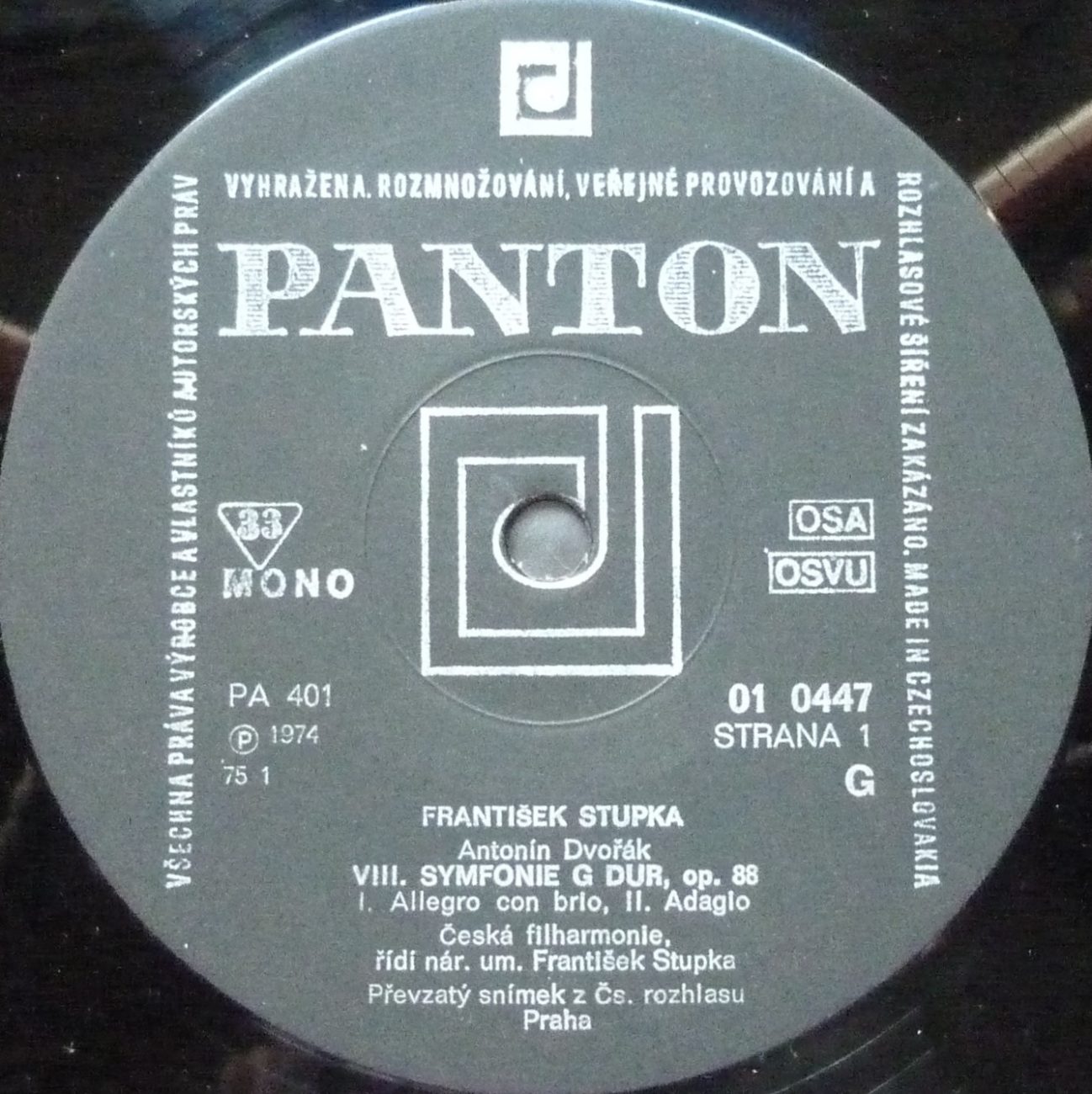
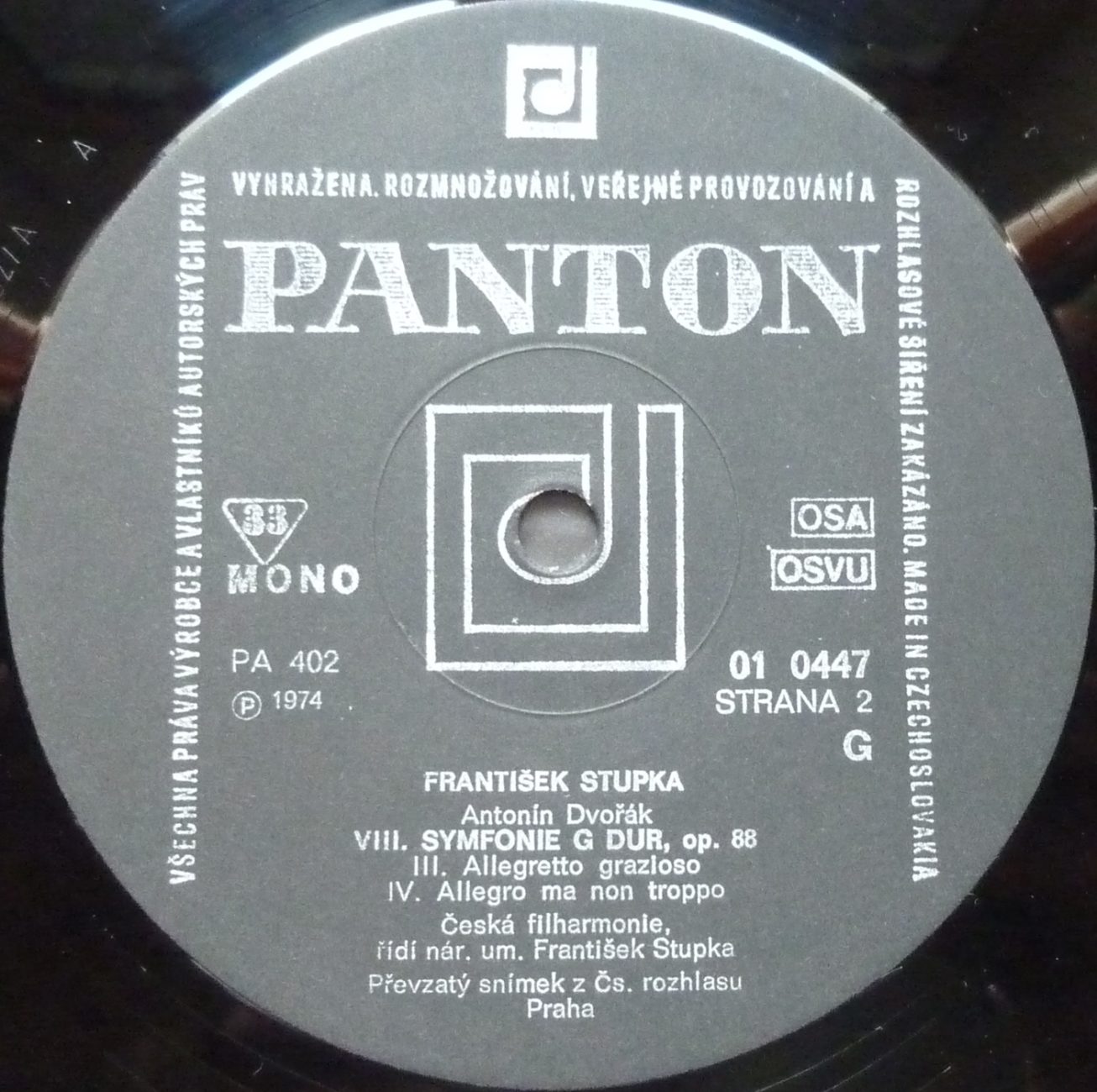
The conductor František Stupka (1879-1965) began his career as second violin in a string quartet while starting his activity as a conductor. In 1919, he was appointed conductor of the Czech Philharmonic Orchestra (Česká filharmonie) alongside Václav Talich and remained in this position until 1946 to take over the direction of the Moravian Philharmonic until 1956.
In fact, his career took place in the shadow of Talich, whom he replaced from 1926 to 1936 while Talich was abroad conducting the orchestra of the Stockholm Concert Society (Stockholms Konsertförenings Orkester), which he had taken over.
Stupka left few recordings, and the truly inspired performance of this Dvořák Eighth, which caused a sensation when it was released in 1974, is probably the most emblematic element of his discography.
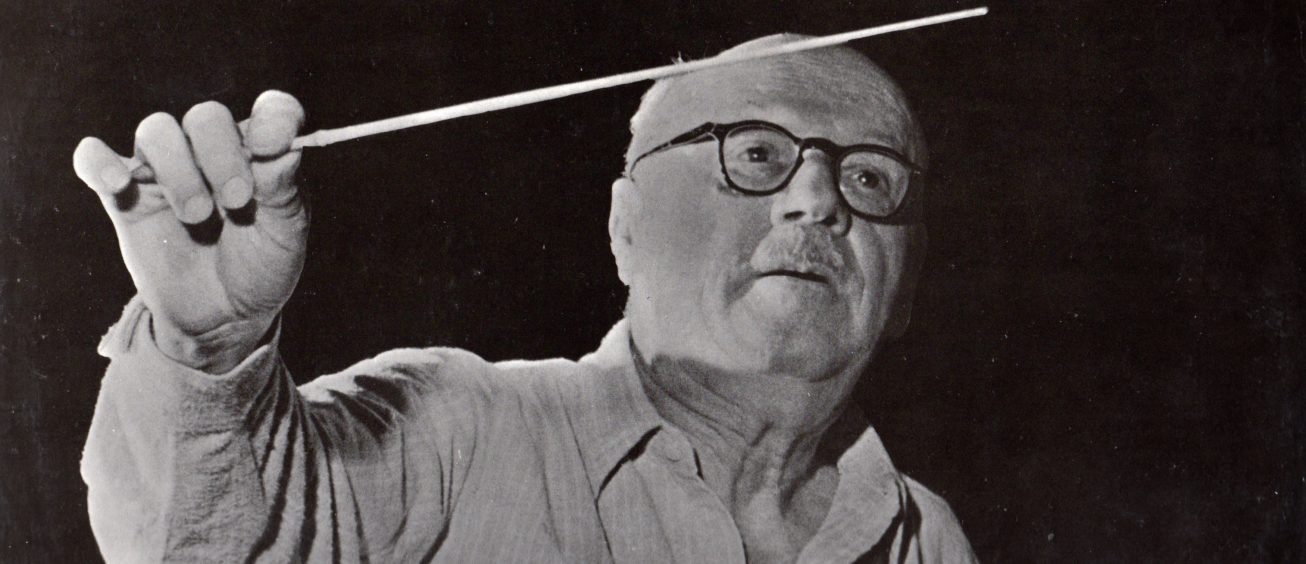

Roger Désormière
Debussy La Mer (De l’aube à midi sur la mer – Jeux de vagues – Dialogue du vent et de la mer)
2 Nocturnes (Nuages – Fêtes)
Ravel Boléro
Česká filharmonie – Czech Philharmonic Orchestra
Enregistrement /Recording: Praha/Prague – Octobre 1950
Source: 33t./LP Supraphon (Ariolia-Eurodisc) 913296 (300104)
Ces captations d’œuvres de Debussy et Ravel font partie de la série d’enregistrements réalisés par Roger Désormière à Prague en octobre 1950, probablement au studio Domovina, quasi-simultanément avec la nomination – le 20 octobre – de Karel Ančerl comme chef titulaire de l’Orchestre philharmonique Tchèque. On ne sait pas si, à cette occasion, Désormière a dirigé des concerts publics avec cet orchestre. Par contre, on sait qu’il a donné le 24 mai au Printemps de Prague (Pražské jaro) 1950 un concert à la Salle Smetana avec l’Orchestre de la Radio Tchécoslovaque (Symfonický orchestr Československého rozhlasu) avec notamment: Mozart: Concerto n°21 K.467 (Monique Haas); Berlioz: Carnaval Romain, Ouverture; Milhaud: Symphonie Pastorale et enfin Ravel: Boléro. Espérons que la radio Tchèque ait conservé des enregistrements.
La Mer par Désormière était un des enregistrements préférés de Sviatoslav Richter: ‘Que de fois je me suis mis ce disque (au moins cent), et à chaque fois, j’ai l’impression que c’est la première. C’est une réussite exceptionnelle. Le simple fait que la technique soit parvenue à capter l’inspiration est en soi miraculeux! Je ne connais pas de plus beau disque. L’interprétation, il n’y a rien à en dire. Elle est unique. Roger Désormière!!’
Ce que souligne Richter à propos de la technique est à rapprocher de ce qu‘ Ivan Devriès, metteur en ondes à la RTF (Radiodiffusion-Télévision Française) écrivait à propos de Désormière: ‘Lorsqu’il dirigeait un concert retransmis par la Radio, Désormière attachait la plus grande importance aux nécessités de la technique et travaillait en étroite collaboration avec le metteur en ondes. Il faisait partie des rares chefs qui se soucient autant de la « cabine » que de l’estrade. On pouvait lui demander toutes les modifications désirables, il s’y pliait de bonne grâce dès l’instant où cela devait permettre un meilleur équilibre sonore. « Je fais mon métier, faites le vôtre … mais faites le bien ! », disait-il.‘
Désormière retrouve dans le Boléro de Ravel la tension du discours musical qu’il déploie dans La Mer, en réussissant un crescendo à la fois d’intensité sonore, de tension dramatique et de tension rythmique qui rend son interprétation vraiment mémorable. Et quel orchestre!
Depuis quelques années, la ville de Prague a mis à l’étude un ensemble architectural dénommé Vltavská Filharmonie et comprenant trois salles de concert. Le projet choisi par le jury international a été révélé le 17 mai dernier. C’est celui du studio danois Bjarke Ingels Group (BIG). Vous pouvez le découvrir en cliquant sur les liens suivants:
vltava-philharmonic-hall Vltavská Filharmonie
____________
Karel Ančerl Orchestre Philharmonique Tchèque Rudolfinum 1950 (cliquer sur l’image pour la voir en grand format /click on the picture to enlarge)
_________
These recordings of works by Debussy and Ravel are part of a series made by Roger Désormière in Prague in October 1950, probably at the Domovina Studio, almost simultaneously with the appointment – October 20 – of Karel Ancerl as music director of the Czech Philharmonic Orchestra. It is not known whether, at the time, Désormière conducted live concerts with this orchestra. However, it is documented that Désormière gave on May 24 during the Prague Spring (Pražské jaro) 1950 a concert at the Smetana Hall with the Orchestra of the Tchecoslovakian Radio (Symfonický orchestr Československého rozhlasu) comprising a.o.: Mozart: Concerto n°21 K.467 (Monique Haas); Berlioz: Carnaval Romain, Overture; Milhaud: ‘Symphonie Pastorale‘ and to end with, Ravel‘s Boléro. Let’s hope that the Czech Radio still has recordings.
La Mer by Désormière was one of Sviatoslav Richter‘s favourite recordings: ‘I have played this disc so many times (at least one hundred), and each time, I have the impression it is the first time. It is exceptionally successful. The mere fact that the technique was able to capture the inspiration is in itself a miracle! I don’t know a more beautiful disc. As to the interpretation, there is nothing to be said. It is unique. Roger Désormière!!’
What Richter underlines about the technique seemingly mirrors what Ivan Devriès, metteur en ondes (musical producer) at the RTF (French Radio and Teevision) wrote about Désormière: ‘When he conducted a broadcast concert, Désormière brought the greatest attention to the demands of the technique and he worked in very close relationship with the musical producer. He was one of the very few conductors who paid as much attention to the ‘cabin’ as to the stage. You could ask him all the desirable changes, and he complied with them as long as it would bring a better tonal balance. He used to say: ‘I’m doing my job, do your job, but do it well!
Désormière finds also in Ravel’s Boléro the tension of the musical flow he displays in La Mer, and builds a crescendo of sound, of dramatic tension as well as of rhythmic tension which makes his interpretation so memorable. And what an orchestra!
A few years ago, the City of Prague has initiated a project architectural ensemble named Vltavská Filharmonie and comprised of three concert halls. The one chosen by the international jury has been revealed on May 17. It is the project submitted by the Danish studio Bjarke Ingels Group (BIG). You may discover it by clicking on the following links:
vltava-philharmonic-hall Vltavská Filharmonie
____________
